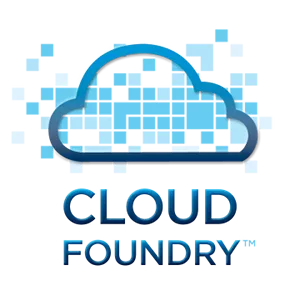First Year Progress Report of Cloud Foundry – Did it PaaS?

how to spy on text messagesVMware put two rock stars, Derek Collison and Mark Lucovsky on the job to create an architecture that would truly democratize PaaS. What they came out with is not just yet another PaaS but a meta PaaS (the marketing term from VMware for this is Open PaaS) that can run anywhere from a developer notebook PC to a massive Public Cloud. I called it meta PaaS because it is a framework for any vendor to implement a PaaS based on their preferred language, framework and runtime. Microsoft and Google spent a lot of dollars and resources to design Windows Azure and Google App Engine. An average platform company cannot match the engineering brilliance and the complexity of Windows Azure or Google App Engine. So, till Cloud Foundry became available, the prominent PaaS players remained to be Microsoft, Google, SalesForce.com, Engine Yard and Heroku. But in the last one year, there has been a huge proliferation of PaaS players and most of them have built an offering based on Cloud Foundry. This has made me wonder if VMware is the new Microsoft in the PaaS World?
VMware has taken a leaf from the OpenStack book. If OpenStack has democratized IaaS by becoming an open source and hypervisor agnostic Cloud Controller, VMware did exactly the same by offering a platform independent PaaS framework. Just like OpenStack is powering big names like HP and AT&T, some well-known platform companies are consuming Cloud Foundry. It is all set to commoditize PaaS by turning every low-end hoster into a potential PaaS player. Undoubtedly, both OpenStack and Cloud Foundry disrupted the IaaS and PaaS landscape in the last one year.
CloudFoundry is one of the first PaaS to go truly Polyglot by supporting a variety of languages and frameworks. This forced existing players like Windows Azure and Heroku to strengthen their support for more languages. Here is a list of environments that are available on Cloud Foundry –
- Java
- Ruby
- Python
- Node.js
- PHP
- Perl
- Clojure
- Erlang
- Scala
- .NET

For Microsoft, the first few competitive .NET PaaS offerings came in the form of Uhuru Software and Iron Foundry, both of those are powered by Cloud Foundry! This is an indication that Cloud Foundry is here to stay. It’s not just these two companies but a large community of platform companies and startups pledged their support to Cloud Foundry. Here is a list of current PaaS offerings built on Cloud Foundry –

CloudFoundry.com – This is the commercial implementation of Cloud Foundry from VMware that is currently in beta. The primary environment supported is Java / Spring followed by Ruby and Node.js.AppFog – PHPFog, a startup focused on brining PHP web applications on the Cloud transformed into AppFog to support more languages. Their primary environment is PHP but they also plan to support more languages.
Stackato – Built by ActiveState, this Cloud Foundry powered PaaS brings the flagship ActiveState languages, Python and Perl to the Cloud.
Iron Foundry – A project led by Tier III, Iron Foundry was launched in December 2011 with the purpose of enabling the .NET ecosystem on Cloud Foundry. They have add-ons for Visual Studio to enable single click deployment of .NET applications on the Cloud.
Uhuru Software – Founded by ex-Microsofties, Uhuru aims at bringing best of Open Source and Windows software development together for Cloud Computing. They have an MMC and Visual Studio integration to deploy .NET applications on their PaaS powered by Cloud Foundry.
Joyent – Joyent is the community owner for Node.js on Cloud Foundry. Though they do not have a complete PaaS implemented on Cloud Foundry, it is expected that Joyent will bring best of both worlds from their SmartMachine offering and Cloud Foundry.
Paas.io – This is a new entrant into the Cloud Foundry ecosystem and looks like they are going to offer yet another polyglot PaaS powered by Cloud Foundry.
One final note that is worth mentioning is that the Private PaaS paradigm was started by Cloud Foundry, which is now becoming a trend across enterprises.
Looking at the momentum that Cloud Foundry gained in just one year, do you think it passed the PaaS test?
- Janakiram MSV, Chief Editor, CloudStory.in
zp8497586rq







